QuestionI have a 7 1/2 month old miniature Australian Shepherd. Since we got her at just over 7 weeks old she has had digestive problems. First it was throwing up in the morning but playing and eating normally. Now it's very loose stools. She was spayed at 6 months with all blood work and fecal tests normal. We don't feed her scraps. She has been food sensitive since we got her. I understand that this is a common Australian Shepherd problem but WHAT THE HECK DO I FEED HER? She is currently eating Canine i/d mixed with warm water but this still hasn't helped. I understand her sire had this same problem and eventually grew out of it but I can't keep washing her rear end all the time. The stools are not "watery" but are full of mucus. Her vet says he can't find anything wrong with her, that she is very healthy. Any suggestions or comments? Please help!
AnswerHealthy Australian Shepherds do not normally have sensitive stomachs and can generally tolerate almost any food given. Stomach distress in conjunction with foods is usually related to an allergic intolerance, and is often considered hereditary.
Another thing that can cause consistent stomach problems that does not always show up on fecal examinations are protozoan infections called Giardiasis and Coccidiosis.
These are small protozoans that live in the environment and digestive tract of most dogs. Normally they don't cause a problem, but when the dog is under stress or their numbers suddenly increase in the intestinal tract, the result is mucus and sometimes blood tinged intermittent diarrhea. A fecal examination does not always reveal the presence of these protozoa or their oocysts. Because it can be hard to detect, some vets will treat the dogs prophylactically (meaning as a preventative measure, just in case)and often with good results.
Three very effective drugs for treating these protozoa are Albon (sulfadimethoxine),Flagyl (metronidazole, and Panacur (fenbendazole).
Once these protozoa are in the environment, it is highly likely that the dog can and will reinfect itself, especially after rainstorms. The oocysts (eggs) are passed in fecal material and widely distributed as the dog walks through the matter. The dog may lick at its paws, ingest grass or chew on toys contaminated and cause a reoccurrence of the infection. It is very hard to eliminate once established in a yard.
Both Coccidia and Giardia are transmittable to humans as well, so use special care to wash your hands and shoes after playing or washing the dog.
Coccidiosia and Giardia can be controlled most practically by limiting exposure to these protozoa by keeping fecal matter picked up, by reducing stress on the animals, and by the treatment of the animal with one of the mentioned medications. Sanitation, dry weather, sunlight, water buckets set up high enough that the dog can not place it's paws in it, and food bowls that are sanitized after each use all help in prevention of disease. Using a mild bleach solution to spray any area that the dog has previously defecated also can have an effect on controlling these protozoa.
It is rare that either of these infections cause long term damage. As the dog matures, the immune system increases resistance and the drugs help protect the animal from serious infections.
Talk to your vet about the possibility of treating for these infections and about the preventative vaccination now available for this specific problem.

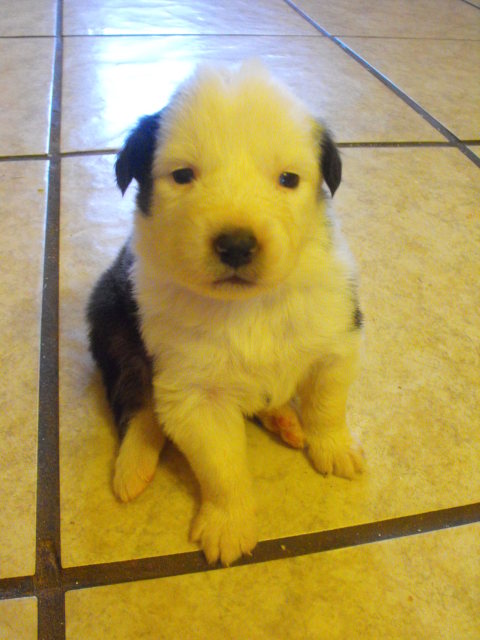 Overly White Face in A Tri Colord Dog
Question
my new puppy
I am going to be getting a female
Overly White Face in A Tri Colord Dog
Question
my new puppy
I am going to be getting a female
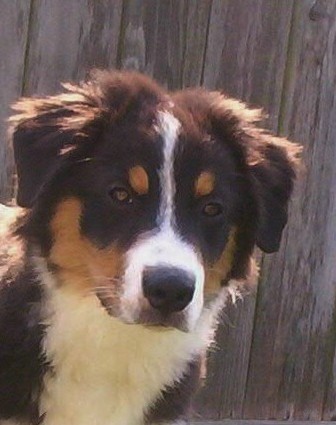 training age
Question
Zak
I have an aussie puppy that is 4 months an
training age
Question
Zak
I have an aussie puppy that is 4 months an
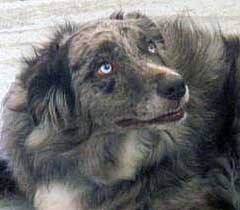 mini aussies
QuestionQUESTION: I have a two-year-old mini aussie, an
mini aussies
QuestionQUESTION: I have a two-year-old mini aussie, an
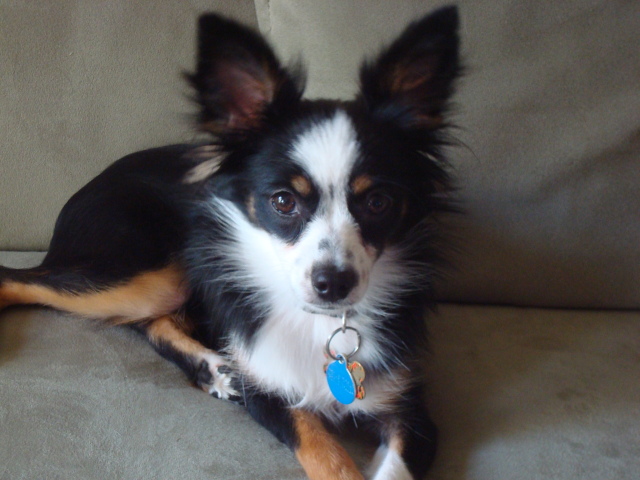 toy aussie
Question
Toy Aussie
We have a toy aussie, he is one yea
toy aussie
Question
Toy Aussie
We have a toy aussie, he is one yea
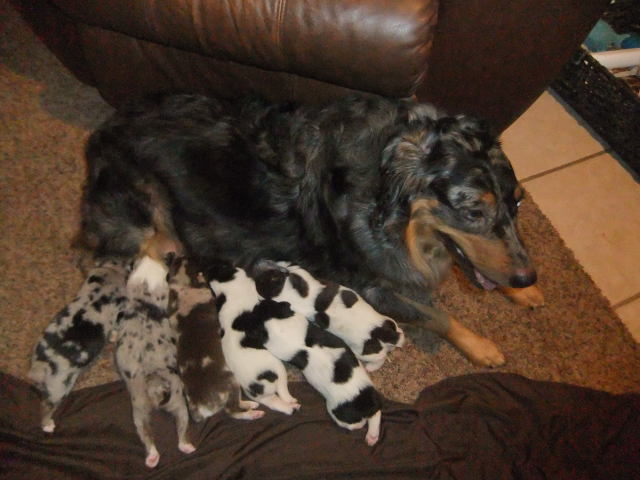 Pattern Whites
Question
Blue merle female and
We bred our blue merle
Pattern Whites
Question
Blue merle female and
We bred our blue merle